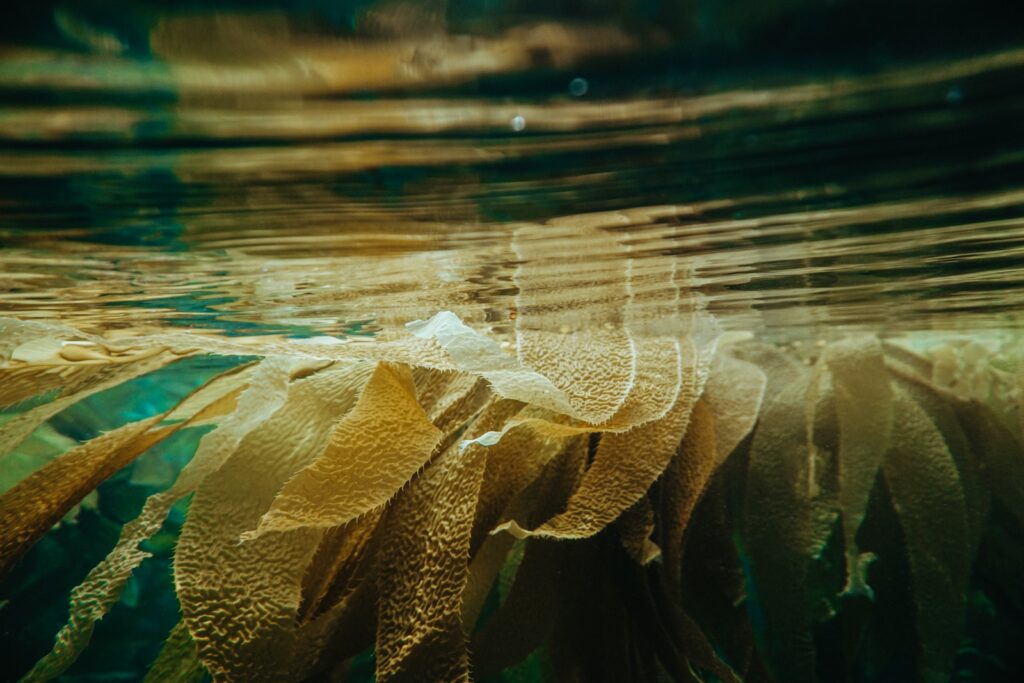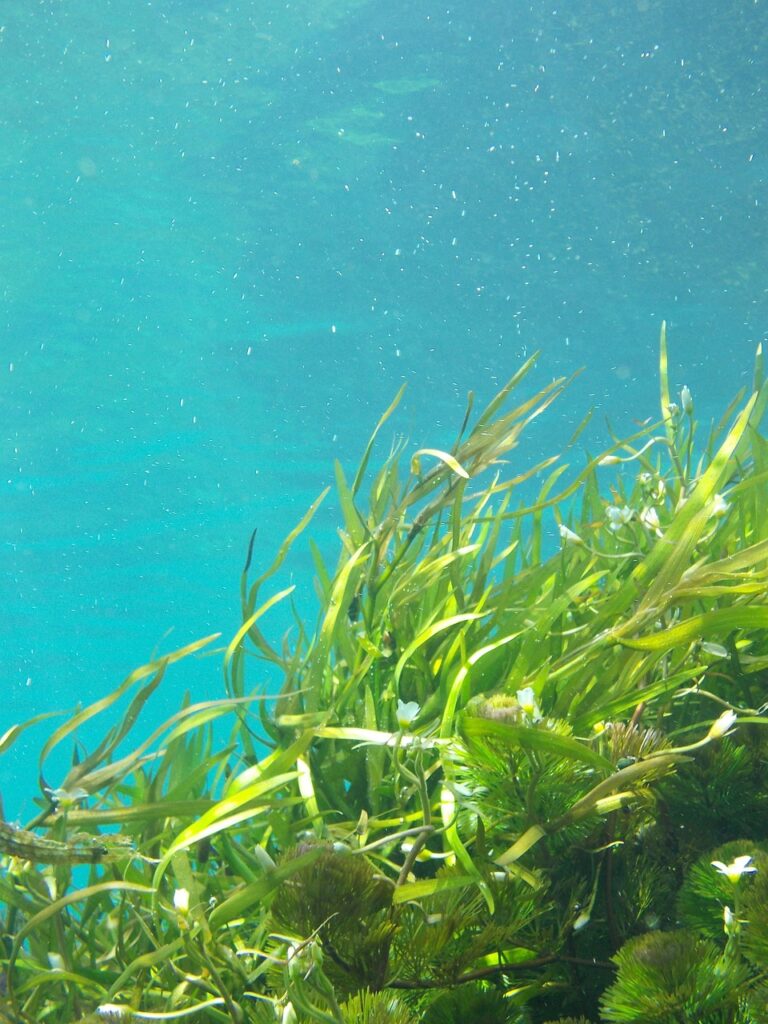Kelp Farming: A Sustainable Solution for Ocean Health
The Environmental Benefits of Kelp Farming
1) Carbon Sequestration and Climate Change Mitigation
One of the most significant benefits of kelp farming is its ability to absorb carbon dioxide (CO2), a greenhouse gas that contributes to global warming. Kelp, like other plants, uses CO2 for photosynthesis, effectively removing it from the atmosphere. This process not only helps mitigate climate change but also combats ocean acidification, a phenomenon caused by increased levels of CO2 in the ocean.
2) Nutrient Bioremediation
It also plays a crucial role in nutrient bioremediation. Excessive nutrients, such as nitrogen and phosphorus, can lead to harmful algal blooms that deplete oxygen in the water, creating “dead zones” where marine life cannot survive. Kelp absorbs these excess nutrients, improving water quality and preventing such detrimental events.
3) Biodiversity Enhancement
Kelp farms can enhance marine biodiversity by providing habitat and food for a variety of marine species. The structures used in this type of farming attract fish and other marine animals, enriching local biodiversity. Moreover, farmed kelp may deliver ecosystem services that could be lost due to the decline of wild kelp.

"Kelp farming could play a pivotal role in creating a sustainable future for our planet and our oceans""

The Potential Impact of Kelp Farming on the Ocean
1) Improving Ocean Health
By absorbing CO2 and excess nutrients, kelp farms can create a temporary “halo” of improved water conditions around them. This effect can benefit other sea life in the area, contributing to overall ocean health.
2) Supporting Marine Life
Kelp provides shelter, habitat, and food for various marine species, including abalone, lobsters, crabs, octopuses, fish, sea otters, sea lions, and whale. By cultivating kelp, we can support these species and contribute to the richness of marine biodiversity.
Looking Ahead: The Future of Kelp Farming
While the benefits of this are clear, it’s crucial to ensure that this practice remains sustainable and does not lead to negative environmental impacts. Large-scale harvesting of kelp forests could potentially disrupt marine ecosystems. Therefore, more research is needed to understand the long-term effects of kelp farming and develop sustainable methods.
In conclusion, kelp farming presents a promising solution for various environmental challenges, from climate change mitigation to ocean health improvement. As we continue to explore and refine this practice, it could play a pivotal role in creating a sustainable future for our planet and our oceans.
